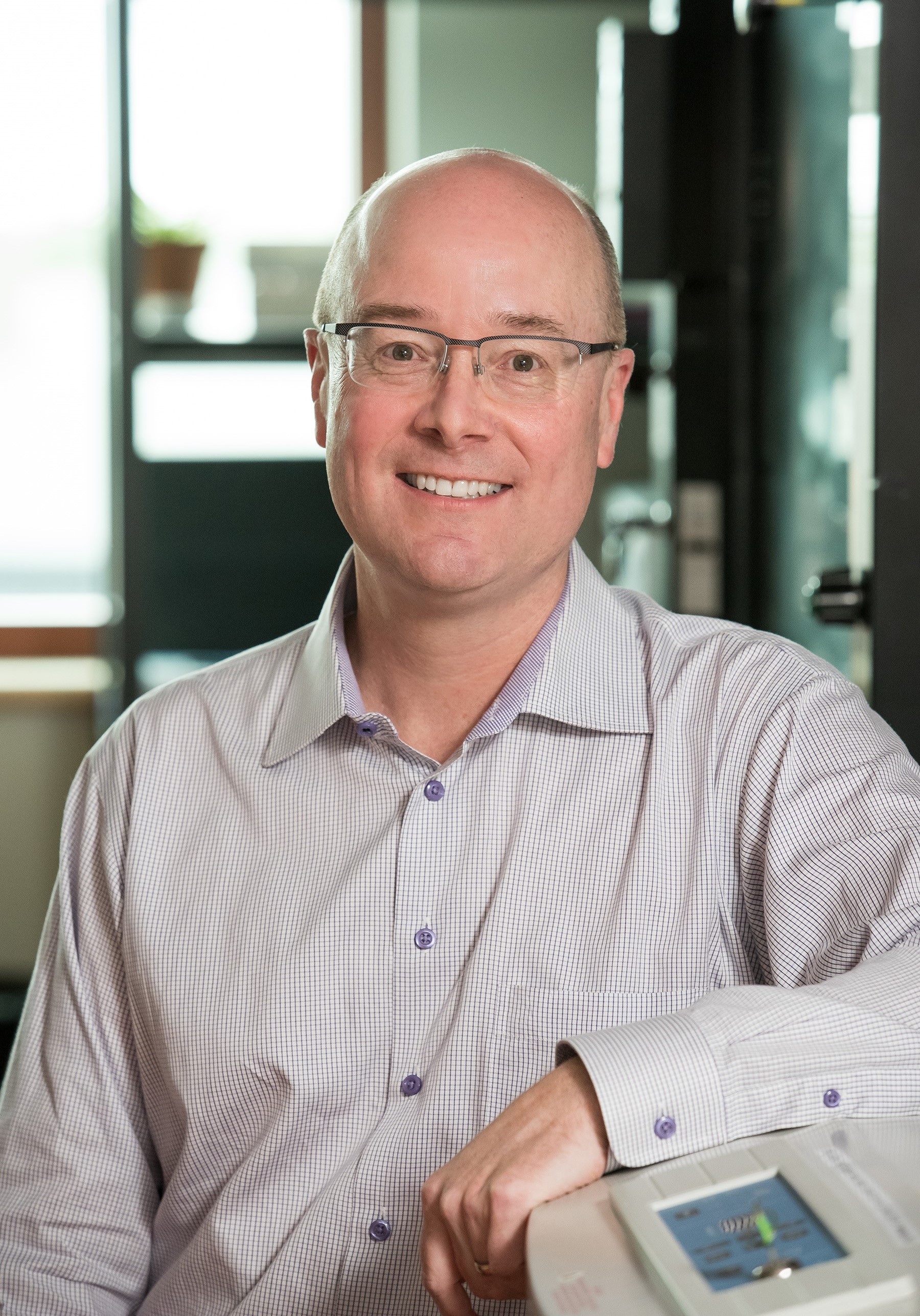Our Research Platform
Our platform provides a comprehensive set of services to suit your research needs. We harness and apply leading-edge technologies in cell isolation, single cell sequencing library preparation, high-throughput multiplex imaging, spatial biology and gene editing. Please reach out to us to learn more about how we can assist you in enabling, optimizing, accelerating your research.
The Team

Dr. Kirk McManus
Director
Dr. McManus is a Senior Scientist at the Paul Albrechtsen Research Institute CCMB and a Professor in the Department of Biochemistry and Medical Genetics at the University of Manitoba. He received his Ph.D. in Oncology from the Cross Cancer Institute, University of Alberta and got his post-doctoral training from the University of British Columbia. Dr. McManus’s research focus is on identifying and characterizing genes that regulate chromosome stability in a cancer context and exploiting these characteristics to identify novel therapeutic targets. Dr. McManus is passionate about advancing our understanding of disease development and progression by characterizing disease phenotypes at the single-cell level and was instrumental in developing and launching the QuIPS platform.
kirk.mcmanus@umanitoba.ca

Nicole Neudorf
QuIPS Platform Manager
Nicole specializes in quantitative imaging microscopy techniques that enable high-throughput and multiplexed imaging and novel discoveries in spatial biology. Before joining QuIPS, Nicole earned her MSc in Biochemistry and Medical Genetics at the University of Manitoba, where she employed quantitative imaging microscopy approaches to study genetic drivers of chromosome instability in cancer. Since joining QuIPS, Nicole has used her experience in quantitative imaging microscopy to enable other researchers to gain novel insight of their disease of interest at the single-cell level using the ImageXpress HT.ai and PhenoCycler-Fusion.
To enquire about the PhenoCycler-Fusion, Molecular Devices Imaging Suite or Protein Jess, please contact Nicole.
nicole.neudorf@umanitoba.ca

Arshani Alukumbura
QuIPS Platform Technician
Arshani specializes in cell sorting and single-cell sequencing library preparation techniques. She received her MSc in Plant Science from the University of Manitoba, where she studied about plant microbiome diversity and genetic interactions of plants and plant pathogens. Before joining QuIPS, Arshani worked as a Research Technician at the University of Manitoba and involved in transcriptomics, proteomics and plant tissue culture research projects. Currently, Arshani uses her expertise to assist researchers in advancing their projects through training and assistance primarily on BD FACS Melody and Chromium X instruments.
To enquire about the FACSMelody or Chromium X, please contact Arshani.
arshani.alukumbura@umanitoba.ca

Obinna Ohaegbula
CRISPR Technician
Obinna specializes in CRISPR-based molecular cloning/subcloning techniques that facilitate the generation of disease models. Before joining QuIPS, Obinna earned his BSc in Medical Biotechnology at the American University of Ras Al Khaimah in the United Arab Emirates, where he first got curious about CRISPR. He then received his graduate certificate in Functional Genomics from Canadore College, where he employed Next Generation Sequencing to study genetic and epigenetic interactions in different metabolic pathways. Obinna currently uses his knowledge of CRISPR and genomics to help researchers develop better disease models that express their desired phenotypes by using CRISPR–Cas9 to knock out, inhibit or activate genes of interest.
To enquire about CRISPR technologies, please contact Obinna.
obinna.ohaegbula@umanitoba.ca
